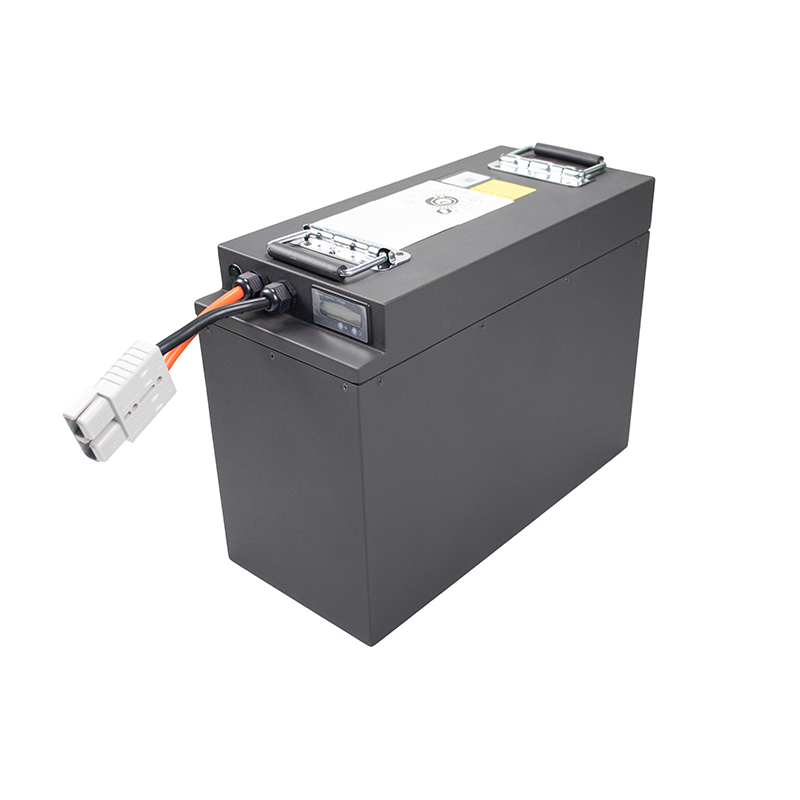Why Choose Lithium Forklift Batteries? A Comprehensive Guide
Why Choose Lithium Forklift Batteries? A Comprehensive Guide
Table of Contents
Introduction to Lithium Forklift Batteries
Advantages of Lithium Forklift Batteries
Efficiency and Performance
Lifecycle and Longevity Compared to Lead-Acid Batteries
Charging Times and Fast Recharging Benefits
Cost-Effectiveness: Upfront Investment vs. Long-Term Savings
Environmental Impact of Lithium Forklift Batteri
2025-07-15

Why Choose Lithium Forklift Batteries? A Comprehensive Guide
Table of Contents
- Introduction to Lithium Forklift Batteries
- Advantages of Lithium Forklift Batteries
- Efficiency and Performance
- Lifecycle and Longevity Compared to Lead-Acid Batteries
- Charging Times and Fast Recharging Benefits
- Cost-Effectiveness: Upfront Investment vs. Long-Term Savings
- Environmental Impact of Lithium Forklift Batteries
- Applications of Lithium Forklift Batteries in Various Industries
- Maintenance Requirements for Lithium Forklift Batteries
- Conclusion
- Frequently Asked Questions
Introduction to Lithium Forklift Batteries
When it comes to powering forklifts, **lithium batteries** are rapidly becoming the preferred choice over traditional lead-acid batteries. The transition to lithium technology is not merely a trend; it represents a significant leap in performance, efficiency, and sustainability. As industries strive for more productive and environmentally friendly solutions, understanding the benefits of lithium forklift batteries is crucial for anyone involved in material handling operations.
Advantages of Lithium Forklift Batteries
Lithium forklift batteries offer numerous advantages that make them stand out in the competitive landscape of battery technology. Here are some key benefits:
1. High Energy Density
Lithium batteries possess a **high energy density**, meaning they can store more energy in a smaller space. This characteristic translates to longer operational times with less weight, making forklifts more efficient.
2. Reduced Weight
The lighter weight of lithium batteries compared to lead-acid batteries allows for increased payload capacity and improved maneuverability in warehouses and factories.
3. Increased Operational Efficiency
Lithium batteries can sustain high discharge rates without suffering from voltage sag, resulting in consistent power delivery throughout the battery's life.
Efficiency and Performance
Efficiency is paramount in any industrial operation. Lithium forklift batteries excel in this area:
1. Consistent Power Output
Lithium batteries maintain their voltage levels throughout the discharge cycle, ensuring that forklifts perform at their best from start to finish. This consistency reduces downtime and enhances productivity.
2. Faster Charging Capabilities
One of the standout features of lithium batteries is their ability to **charge quickly**. Most lithium forklift batteries can be charged in less than two hours, significantly reducing the time equipment is out of service.
Lifecycle and Longevity Compared to Lead-Acid Batteries
When evaluating battery options, **lifecycle** is a critical factor. Lithium forklift batteries boast significantly longer lifespans compared to traditional lead-acid counterparts:
1. Extended Lifespan
Lithium batteries can last up to **twice as long** as lead-acid batteries, often exceeding 5,000 cycles. This longevity means fewer replacements and reduced waste, providing a sustainable solution for businesses.
2. Low Maintenance Requirements
Unlike lead-acid batteries, which require regular maintenance, such as watering and equalization charges, lithium batteries are virtually maintenance-free. This aspect further enhances their attractiveness for busy operations.
Charging Times and Fast Recharging Benefits
In today’s fast-paced environments, every minute counts. The quick recharge ability of lithium batteries is a game-changer:
1. Opportunity Charging
Lithium batteries allow for **opportunity charging**, enabling operators to recharge the battery during breaks or downtimes without causing harm. This feature maximizes uptime and keeps operations running smoothly.
2. Reduction in Charging Infrastructure Costs
With faster charging times, businesses can reduce the need for multiple chargers and dedicated charging areas, leading to lower infrastructure costs.
Cost-Effectiveness: Upfront Investment vs. Long-Term Savings
While the initial investment in lithium forklift batteries may be higher than lead-acid options, the long-term savings can be substantial:
1. Total Cost of Ownership (TCO)
When calculating the Total Cost of Ownership, lithium batteries often come out on top. Their longer lifespan, lower maintenance needs, and efficiency can lead to significant operational savings over time.
2. Resale Value
As lithium technology continues to advance, the resale market for used lithium batteries is growing. This trend can further offset initial costs for businesses that choose to upgrade their systems.
Environmental Impact of Lithium Forklift Batteries
Sustainability is a growing concern for many industries. Lithium forklift batteries offer several environmental benefits:
1. Reduced Carbon Footprint
Lithium batteries produce fewer emissions during production and use, helping companies lower their carbon footprints and comply with increasingly stringent environmental regulations.
2. Recycling Potential
The recycling processes for lithium batteries are becoming more efficient, allowing for the recovery of valuable materials and minimizing waste in landfills.
Applications of Lithium Forklift Batteries in Various Industries
Lithium forklift batteries are versatile and applicable in numerous settings, including:
1. Warehousing and Distribution
In warehouses, the fast charging and long-lasting performance of lithium batteries support the rapid movement of goods, reducing bottlenecks and increasing throughput.
2. Manufacturing
Manufacturers benefit from the reliability and efficiency of lithium batteries, ensuring that operations run smoothly without unexpected downtimes.
3. Food and Beverage
The food and beverage industry's stringent hygiene standards make lithium batteries appealing due to their maintenance-free nature and ability to operate in various temperatures.
Maintenance Requirements for Lithium Forklift Batteries
The minimal maintenance of lithium forklift batteries is one of their most appealing aspects:
1. No Watering Required
Unlike lead-acid batteries, lithium batteries do not require watering. This feature saves time and reduces the risk of spills and contamination.
2. Monitoring Systems
Many lithium battery systems come equipped with built-in monitoring capabilities, allowing operators to track performance, state of charge, and health, further simplifying battery management.
Conclusion
Investing in lithium forklift batteries is a forward-thinking decision for businesses aiming to enhance efficiency, reduce costs, and promote sustainability. The advantages of lithium technology — from longer lifespans and faster charging to environmental benefits — make it a superior choice for modern material handling operations. As industries evolve and demand for efficient solutions grows, lithium forklift batteries are poised to lead the way.
Frequently Asked Questions
1. How long do lithium forklift batteries last?
Lithium forklift batteries typically last between 5,000 to 8,000 cycles, significantly longer than lead-acid batteries.
2. Can lithium batteries be charged at any time?
Yes, lithium batteries can be charged at any time without affecting their lifespan, making them ideal for opportunity charging throughout the workday.
3. Are lithium forklift batteries heavier than lead-acid batteries?
No, lithium batteries are generally lighter than lead-acid batteries, which can improve forklift efficiency and payload capacity.
4. What is the maintenance requirement for lithium forklift batteries?
Lithium batteries require minimal maintenance, with no need for watering or equalization charging, making them a hassle-free option.
5. Are there recycling options for lithium batteries?
Yes, there are established recycling processes for lithium batteries to recover valuable materials and reduce environmental impact.
Key words:
Related News


